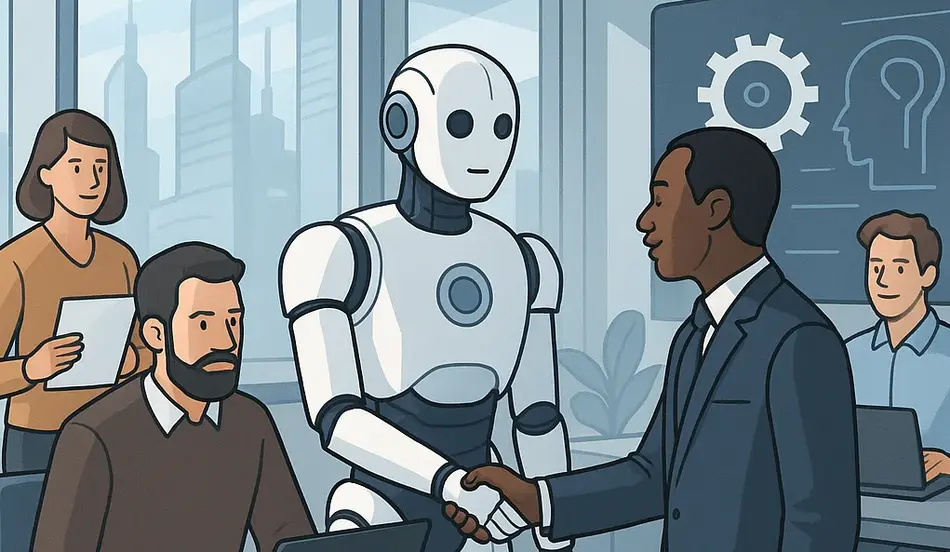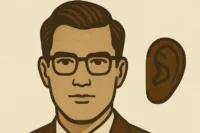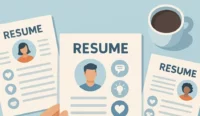Introduction: The AI Revolution in the Workplace
The rapid advancement of artificial intelligence is fundamentally changing how we work, creating both challenges and opportunities for professionals across industries. From Elon Musk’s conversations with world leaders to real-world job displacement statistics, AI’s impact on employment is no longer theoretical—it’s happening now. This comprehensive guide explores how AI is transforming the job market, which careers are most vulnerable, and how you can future-proof your professional life in an AI-dominated world.
The Current State of AI and Employment
What Industry Leaders Are Saying
When British Prime Minister Rishi Sunak asked Elon Musk about AI’s impact on employment, Musk’s response was sobering: we’re witnessing something unprecedented—the creation of technology more intelligent than humans. According to Musk, we may eventually reach a point where traditional employment becomes optional rather than necessary.
Real Numbers Behind AI Job Displacement
The concerns aren’t just speculative. According to Goldman Sachs research, AI could impact approximately 300 million jobs globally by 2030. Additional statistics paint a concerning picture:
- 25% of routine workplace tasks have already been automated by AI
- 83 million jobs are projected to be lost within the next five years
- Major corporations including Autodesk, IBM, Siemens, and Citigroup have already reduced their workforce due to AI implementation
How Companies Are Responding to AI Advancements
Corporate Adoption Strategies
Despite concerns about job displacement, forward-thinking companies are actively integrating AI into their operations:
- Zomato founder Deepinder Goyal is actively seeking collaborations with AI specialists
- Financial startups like ID Money are conducting AI hackathons to explore implementation opportunities
- Technology firms are restructuring teams to prioritize AI expertise
The Historical Context: Is This Time Different?
Some argue that technological anxiety is nothing new. When calculators were introduced, educators worried about their impact on mathematical skills and potential job losses. However, the current AI revolution differs in fundamental ways:
- Previous technologies automated specific tasks; AI can perform entire job functions
- The pace of AI advancement is exponentially faster than previous technological shifts
- AI can now perform creative and cognitive tasks previously thought to require human intelligence
AI’s Breakthrough Achievements
Beyond Human Capabilities
The capabilities of modern AI systems have already surpassed human performance in specific domains:
- Google DeepMind’s AlphaFold identified 35 million protein structures in one month—a task that would have taken humanity centuries
- By July 2021, AlphaFold had mapped 200 million protein structures, compared to the 1.8 million structures identified by all human researchers throughout history
- Tasks that once required years of specialized PhD research can now be completed in hours or minutes
The Nobel-Worthy Impact
The scientific contributions of AI systems like AlphaFold represent breakthrough achievements worthy of the highest recognition. These advancements aren’t just incremental improvements—they’re transformative leaps that are accelerating scientific discovery across disciplines.
The Real-World Impact on Freelancers and Content Creators
The Freelancer’s Dilemma
Consider the case of Ravi, a freelance content writer who charges ₹1 per word for blog posts. His comfortable career was disrupted on November 30, 2022, when ChatGPT launched. Initially skeptical about AI-generated content, Ravi soon witnessed how quickly the technology could produce coherent articles on demand.
Industry Disruption in Publishing
Ravi’s concerns were validated when he learned about:
- The Senate reducing its content writing staff by 10% after implementing AI writing tools
- Sports Illustrated facing client cancellations after it was revealed they were using AI-generated content
The Quality Gap Is Closing
While early AI content was easily distinguishable from human writing, the quality gap is rapidly narrowing:
- Advanced language models can now produce content that passes as human-written
- AI systems can incorporate research, maintain consistent tone, and generate creative ideas
- The release of more sophisticated models like GPT-4 has further blurred the line between human and AI content
How to Future-Proof Your Career in the Age of AI
Identify AI-Resistant Career Paths
Some career fields remain difficult for AI to replicate:
- Roles requiring complex emotional intelligence and interpersonal skills
- Positions that involve physical dexterity in unpredictable environments
- Creative fields that require novel thinking and cultural relevance
- Jobs requiring ethical judgment and human values alignment
Develop Complementary Skills
Rather than competing directly with AI, focus on developing skills that complement AI capabilities:
- AI prompt engineering and system design
- Data interpretation and contextual analysis
- Ethical oversight and responsible AI implementation
- Human-AI collaboration and workflow integration
Embrace Continuous Learning
The rapid pace of AI development means that staying relevant requires ongoing education:
- Dedicate time weekly to learning about AI advancements in your field
- Experiment with AI tools to understand their capabilities and limitations
- Participate in communities discussing the ethical implications of AI
- Pursue micro-credentials in emerging technologies and methodologies
Looking to explore new career opportunities in this changing landscape? Search thousands of jobs on WhatJobs to find positions that match your evolving skillset.
The Psychological Impact of AI-Driven Career Disruption
Managing Career Anxiety
The uncertainty surrounding AI’s impact on employment can trigger significant anxiety:
- Acknowledge concerns without catastrophizing
- Focus on aspects of your career within your control
- Develop multiple income streams to reduce dependency on a single role
- Build transferable skills that apply across various industries
Reframing the AI Revolution as Opportunity
While AI presents challenges, it also creates new possibilities:
- Automation of routine tasks can free professionals for more meaningful work
- New career paths are emerging specifically related to AI implementation
- AI tools can enhance productivity and creativity when used effectively
- The transition period offers first-mover advantages for those who adapt quickly
Need guidance on navigating career transitions? Check out our comprehensive career advice resources for expert insights and practical strategies.
FAQ: AI and the Future of Work
Will AI completely replace human workers?
While AI will automate certain jobs entirely, most occupations will be transformed rather than eliminated. The technology is more likely to replace specific tasks within jobs rather than entire professions, leading to role evolution rather than wholesale replacement.
Which industries are most vulnerable to AI disruption?
Industries with highly structured, routine tasks are most vulnerable, including data entry, customer service, content production, basic accounting, and certain legal services. However, even creative fields like graphic design and content writing are experiencing significant AI impact.
How quickly will AI transform the job market?
The transformation is already underway and accelerating. Major shifts are expected within 3-5 years, with substantial workforce restructuring likely within the next decade. The pace varies by industry, with knowledge work seeing faster disruption than fields requiring physical manipulation.
How can I determine if my job is at risk from AI?
Assess your role by breaking it down into component tasks and evaluating each for:
1. Repetitiveness and predictability
2. Reliance on data analysis
3. Need for creative problem-solving
4. Requirement for human emotional intelligence
5. Physical manipulation in unstructured environments
What new jobs will AI create?
Emerging roles include AI ethicists, prompt engineers, AI-human collaboration specialists, AI trainers, explainable AI specialists, and AI implementation consultants. Many traditional roles will also evolve to incorporate AI oversight and management components.
Conclusion: Adapting to the AI-Transformed Workplace
The AI revolution represents perhaps the most significant transformation in work since the Industrial Revolution. While the challenges are real, history shows that technological advancement ultimately creates more opportunities than it eliminates—though often in forms difficult to predict from our current vantage point.
Success in this new landscape will require adaptability, continuous learning, and a willingness to collaborate with AI systems rather than compete against them. By developing complementary skills, staying informed about technological developments, and maintaining flexibility in your career path, you can navigate the AI transformation successfully.
The future of work isn’t about humans versus AI—it’s about finding the optimal partnership between human creativity, judgment, and emotional intelligence and AI’s computational power, pattern recognition, and tireless consistency.
Ready to explore opportunities in AI-adjacent fields? Browse our job listings to discover roles that leverage your unique human capabilities alongside AI tools.






